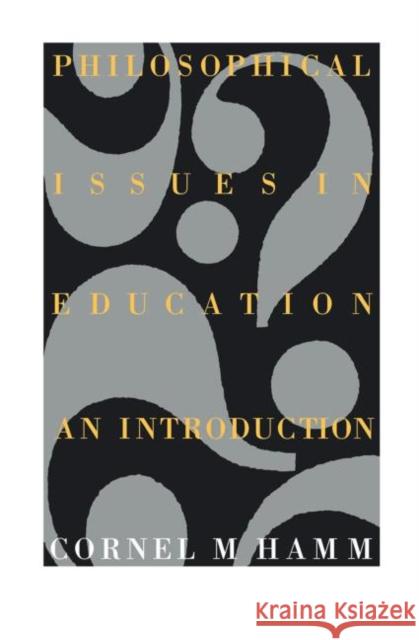Philosophical Issues In Education: An Introduction » książka
topmenu
Philosophical Issues In Education: An Introduction
ISBN-13: 9781850005995 / Angielski / Miękka / 1989 / 196 str.
Philosophical Issues In Education: An Introduction
ISBN-13: 9781850005995 / Angielski / Miękka / 1989 / 196 str.
cena 154,96 zł
(netto: 147,58 VAT: 5%)
Najniższa cena z 30 dni: 151,07 zł
(netto: 147,58 VAT: 5%)
Najniższa cena z 30 dni: 151,07 zł
Termin realizacji zamówienia:
ok. 16-18 dni roboczych.
ok. 16-18 dni roboczych.
Darmowa dostawa!
First published in 1989. Routledge is an imprint of Taylor & Francis, an informa company.











